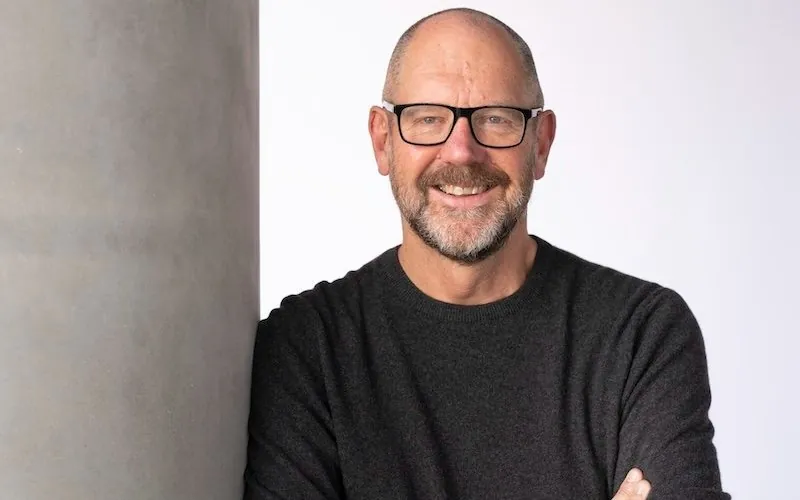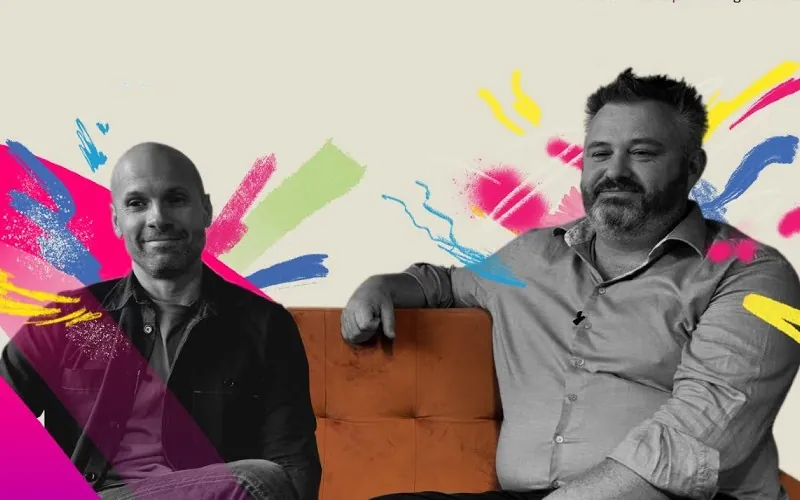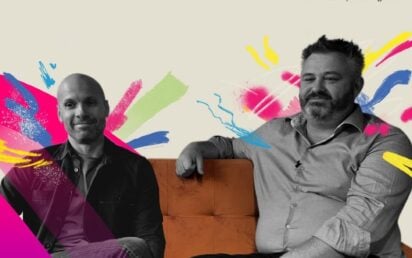If technology tends to arrive in waves, then just how big a swell is GenAI?
Some would have it as a tsunami which threatens to sweep everything before it, destroying whole strata of jobs and even industries; while others are more positive.
Digital transformation consultancy Daemon is one of those looking to help clients ride the wave of this generational tech.
“The AI revolution presents an exciting opportunity for organisations: it’s not just another tech trend but has a real scaling factor for our business,” Steve Bennett tells BusinessCloud.
“It’s going to allow us to deliver more value, more quickly, and to punch above our weight in a competitive landscape. That ability to move faster and help our clients move faster is going to be key to our growth.“
His co-founder Calum Fitzgerald adds: “We often talk about technology arriving in waves, and we’ve built our services to align with those waves. GenAI is just the latest wave, and while AI as a whole is a broad church, this rise in large language models sits in a sweet spot for us.
“We’ve been working in AI for years, but this current seismic shift presents a new kind of challenge that clients are still getting their heads around. What we’re focused on is helping them cut through the noise, understand what’s actually valuable, and then adopt and exploit those opportunities in the right way.”
The AI-Team
The firm – which operates in the UK and South Africa – recently launched an ‘AI-First Squad’, described as a specialist team set to challenge and transform the software development lifecycle. Rather than simply applying AI to existing processes, its ‘fail fast, learn fast’ approach will see it rapidly experiment and develop new methodologies for client projects.
Partnerships with the likes of AWS (Amazon Web Services), Microsoft, Snowflake, and Confluent will be crucial here.
“Partnerships have been part of our DNA right from the very start,” says Fitzgerald. “From day one, we’ve understood the value of working closely with technology partners. It allows us to stay close to the latest developments, stay curious, and help our clients sift the signal from the noise.”
The pair met while working as independent technologists at the AA on what was, at the time, one of the UK’s busiest websites. They would go on to collaborate on projects across Europe fixing big, complex systems.

Hit & run
They founded Daemon in 2007 to get away from an industry trend for “hit and run consulting”, as Fitzgerald terms it.
“At the time technical folk (engineers) were rarely treated as first-class citizens in an organisation,” he explains. “If you wanted to progress, you had to stop being technical and move into management. We wanted to change this.
“We started the business right at the time of the global financial crisis – so clearly our timing was awesome! – but we desired change, we wanted to work with clients over the long term, build real partnerships and create a place where everyone was valued.
“Maybe most importantly, however, we also wanted to create somewhere that would make us excited to get up and come into work everyday.”
The name Daemon is a nod to their shared past – the ‘daemon’ that runs in the background on Unix operating systems – as well as to the daemon of Greek Mythology, a friendly spirit helper and conscience that acts like a guide.
“That’s how we see ourselves: as quiet advisors who speak truth, not flattery and who ensure our clients achieve success, whatever their endeavour, whilst steering them away from chaos.”

New chair
The firm now has just under 200 consultants and is growing sustainably. Clients include Sainsbury’s and Superdry, while the supermarket giant’s former CTO Richard Newsome (pictured above) was recently appointed as its non-executive chairman.
The goal is to support Daemon’s work in the retail sector, while expanding its footprint into financial services and the public sector.
Fitzgerald describes the appointment as “a really important step”.
“As a business, we’ve always been quite humbled by the calibre of people in the industry who’ve shown a real desire to work with us. Richard is someone we’ve known and respected for a long time.
“He was actually a client of ours at one point, so for him to now join us as chairman feels like both a natural progression and a win for us. We’re excited for him to help us mature our strategy and operating model.”
Bennett adds: “We’re a founder-led business, but we’re also focused on building something that empowers the whole company to be leaders. Richard’s appointment is a big part of that journey.
“We’re still very much present and driving things forward, but now with more support and strength around us.”
Agree to disagree
So how do the pair dovetail as co-founders of the business? They agree that being willing to disagree is important.
“One of our real strengths is that Steve and I are often aligned on where we want to get to, but we usually arrive there through very different approaches,” says Fitzgerald. “When we’re both aligned on a decision, we can move forward with real confidence. And when we’re not aligned, it’s often because one of us has seen something the other hasn’t yet.
“A quote that resonates is ‘strong opinions, loosely held’. You have to be willing to debate a point properly, listen to the other perspective, and shift your thinking when it makes sense. That approach is baked into the company ethics and values.”
Bennett says they recognise and respect the differences. “We’ve got very different personalities and ways of thinking, but what we share is just as important: our ethics, our values, and the mission of the business. That’s what grounds us.
“We also actively invest in our relationship so we can have those hard conversations in a productive way. For example, we’ll do long walks or our annual road trip to check in – and we’ve now got a foundation that just allows us to be open and honest and more collaborative.”
Tips
What tips would they offer to fellow founders looking to grow and scale a startup?
“One of the biggest lessons we learned – and it took us about five years to really get it – is that people who’ve been on the journey before you are often incredibly passionate about helping,” says Bennett.
“We had this idea that others would be protective of the journey they’ve been on, but that couldn’t be further from the truth. Every time I’ve reached out to someone and asked for a coffee to talk through a challenge, they’ve been open, generous, and honest. There’s so much help available out there, and a lot of it costs nothing. You just have to ask.”
Fitzgerald adds: “Another key thing is knowing when you’re getting in your own way. We had an advisor once who drew a squiggly line on a whiteboard. Starting at the bottom left and ending at the top right, he pointed to the lowest peak and said: ‘You’re optimised for here. You’ve got to go down to go up.’
“At the time, it felt cryptic, but it unlocked something for us. Once we got out of our own way, the business grew 50% year on year.
“Also, when you’re in a situation where things are quite tough, it’s important to keep going. One big lesson we learned early on was don’t stop until the client tells you to stop. Sometimes you can think things are going badly and disengage, but you’ve got to keep going, because your client is relying on you not to quit.”

